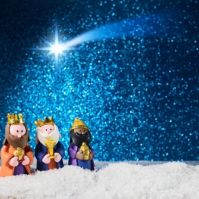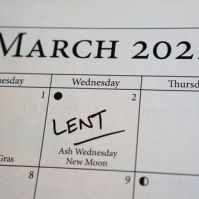![]() In English countries, the holiday celebration continues on December 26 with a custom known as Boxing Day. Servants and masters may trade places, but the tradition began years ago. The gentry would retain their servants on Christmas Day to serve the guests and family. Then, on December 26, servants would be sent home to have their own Christmas celebration. Many times, the master would provide them with a box of leftover food and gifts to take with them.
In English countries, the holiday celebration continues on December 26 with a custom known as Boxing Day. Servants and masters may trade places, but the tradition began years ago. The gentry would retain their servants on Christmas Day to serve the guests and family. Then, on December 26, servants would be sent home to have their own Christmas celebration. Many times, the master would provide them with a box of leftover food and gifts to take with them.
In the Roman Catholic, Anglican, Lutheran and Orthodox churches, December 26 is more commonly celebrated as the Feast of Saint Stephen. In some European countries, St. Stephen's Day is a public holiday. Although many people don't actually celebrate St. Stephen, he is considered an important figure in Christian history.
Who Is Stephen?
Stephen is mentioned in the Books of Acts in the New Testament. He was a deacon appointed by the Apostles to serve the poorer members of the early church. Some believe Stephen was the oldest of the deacons, and thus, an archdeacon. Not much is known about Stephen prior to this appointment. He most likely was born Jewish, but there is no mention of that in the Bible. During this time, some of the widows were not being taken care of by the community. The Apostles believed that they were to take care of widows. Deuteronomy 24 states:
You shall not pervert the justice due to the sojourner or to the fatherless, or take a widow's garment in pledge, but you shall remember that you were a slave in Egypt and the Lord your God redeemed you from there; therefore I command you to do this. "When you reap your harvest in your field and forget a sheaf in the field, you shall not go back to get it. It shall be for the sojourner, the fatherless, and the widow, that the Lord your God may bless you in all the work of your hands. When you beat your olive trees, you shall not go over them again. It shall be for the sojourner, the fatherless, and the widow. When you gather the grapes of your vineyard, you shall not strip it afterward. It shall be for the sojourner, the fatherless, and the widow.
Acts tells us that Stephen taught and performed signs and wonders. He humiliated the leaders of the synagogue by besting them in a debate when they challenged his teachings. He was accused of preaching against the temple and of Moses. When Stephen was brought before the Sanhedrin, the Jewish leadership council, he gave a long speech defending himself. The crowd became angry, accusing him of blasphemy. They drove Stephen out of the city and stoned him to death. He is thought to be the first Christian martyr, but some historians believe that the account is of another person. Interestingly, Saul, who became Paul, approved of the stoning. Ultimately, Stephen would be venerated as a saint to be remembered in the church today.
Celebrating St. Stephen's Day
Many traditions surround St. Stephen's Day. It used to be a popular day for weddings in Finland. Sleigh rides are another tradition on December 26. In Austria, the priest might bless the horses. In Ireland, the tradition would be to dress up in old clothes and go door-to-door carrying fake wrens while singing and dancing. People might visit family members or go see a pantomime. Although the traditional ceremonies are not as popular as they were years ago, it's still an important date in the Christian calendar. Remembering the stories of the men and women who kept the Christian faith alive reminds us of our heritage. We often forget why we have the freedom to worship.



